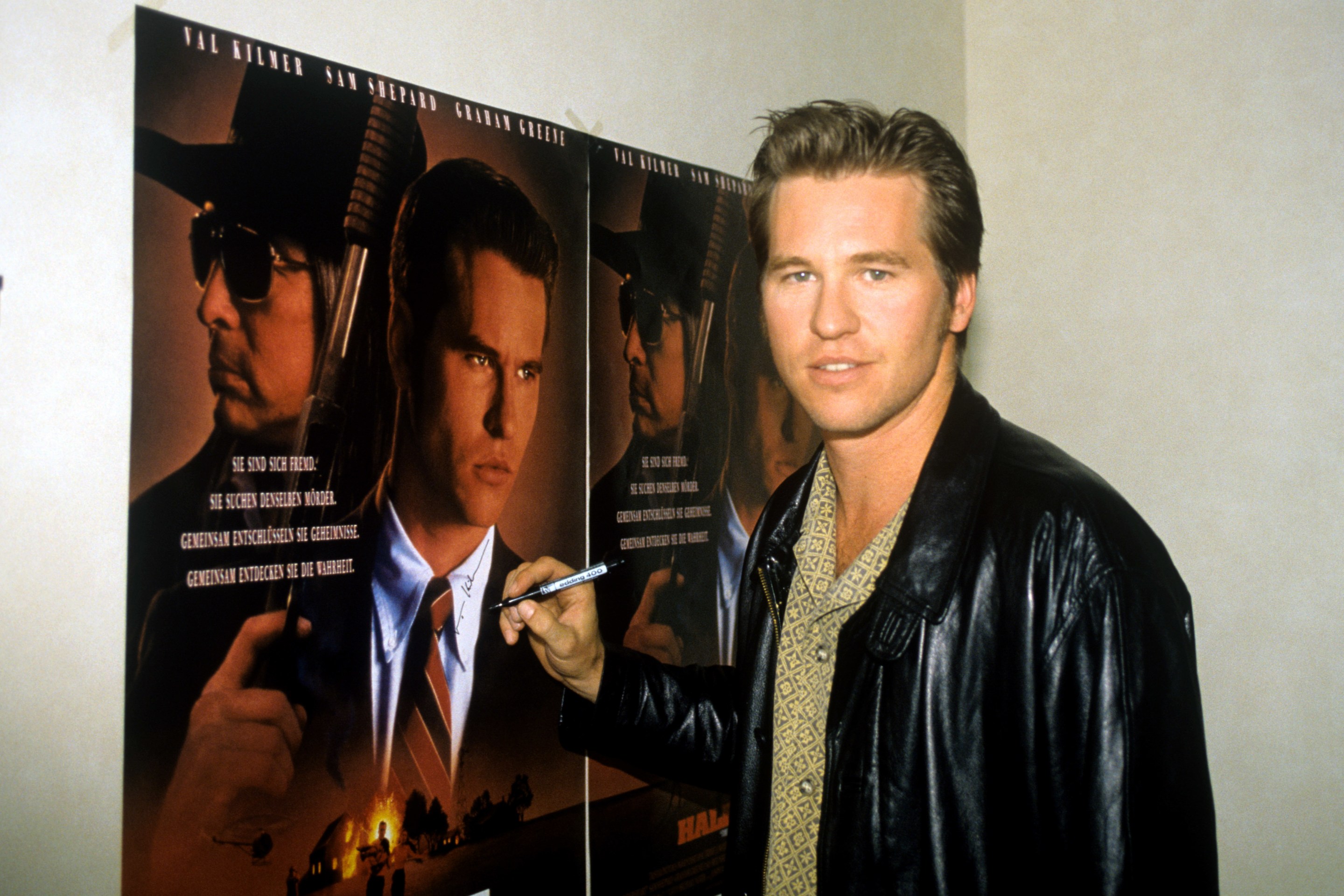Steve Carlton won 27 games and the National League Cy Young Award in 1972, lost 20 games and gave up more earned runs than any pitcher in the league in 1973, and then stopped speaking to the media entirely over the next few seasons. Carlton continued not to talk—not as he won the Cy Young three more times in six years, not after he won his 200th career game or his 300th, and not as the lightning in his left arm first flickered and then finally failed, by which point Carlton was trying to make back the $10 million that an unscrupulous agent had taken from him. During that purgatorial final stretch, Carlton shuffled through five different teams in two years. He won a World Series with the Cardinals when he was first becoming what he would be, in 1967, and then another with the Twins in 1987, as a 42-year-old emergency starter with an ERA that started with a six. He pitched brilliantly for both the decades between those triumphs.
There was one particularly unlikable Philadelphia columnist that Carlton particularly didn't want to talk to, but mostly he didn't want to play his designated part in the industrial process of baseball media, and so just did not. The people covering Carlton called it The Big Silence, and hated him for it. Carlton finally started talking, a little desperately, near the end, but when he insisted, after a dead-cat bounce of quasi-competence with the White Sox in 1986, that he could still pitch into his 40s, the Chicago Tribune's Bernie Lincicome wrote that he "should have kept his mouth shut." Lincicome added a line break for emphasis before concluding, "at least when he wasn't talking, he didn't lie."
Carlton received 96 percent of the vote in his first year on the Hall of Fame ballot, in 1994; among starting pitchers, only Tom Seaver has ever received a higher percentage. Carlton was uncharacteristically or conveniently or maybe even authentically voluble after his election, and seemingly quite happy to talk. "I thought he did a super job answering questions," Hall of Fame Vice President Bill Guilfoyle told Murray Chass of the New York Times in April of 1994. "It was focused strictly on baseball. He made some pertinent observations about hitters, pitchers, catchers."
The reason Chass was asking, and the reason Guilfoyle was moved to mention that Carlton stuck to sports in those interviews, was a story that Pat Jordan had written about Carlton for that month's issue of Philadelphia Magazine. Carlton was known as a fastidious, driven, multiply eccentric baseball genius during his career, but also only known by the observable public-facing edges of his personal unusualness—the "mood behavior" room in which he sat before starts staring at a painting of the ocean; the arm exercises he did in a bucket of brown rice; the Eastern philosophy he read and the various esoteric disciplines he was purported to practice. The story in Philadelphia Magazine filled that outline in, in Carlton's own words, and what had appeared from the outside to be a typical ballplayer mishmash of useful affirmations and secret tenets was revealed as something both more and less coherent, and which now seems much more prosaic. This was how Tim McCarver, Carlton's longtime personal catcher, came to tell Chass that he "could say, with all the assurance in the world, that Lefty is not a bigot and he is not an anti-Semite."
You have probably guessed that McCarver said this because Carlton was quoted saying some extremely fucking bigoted and anti-Semitic things in Jordan's story.
But Carlton said a lot of things in that story, and the sheer volume of his various conflicting and often contradictory conspiratorial beliefs was such that their roaring and furious confluence obliterated any legible politics. Still, Bob Ryan was moved last week to make the comparison, despite Twitter's inadvisable character count restrictions, between Carlton and huffy Hall of Fame snubee Curt Schilling.
Hey Curt: What Hall of Famer said 12 Swiss Jewish bankers ruled the world, the last 8 US presidents were “traitors” and AIDS was hatched in a Maryland lab in order to kill gays and blacks and still got 95.82 pct of the vote? A: Steve Carlton. P.S. I voted for him and for you.
— Bob Ryan (@GlobeBobRyan) January 28, 2021
Yes, Carlton was living in an earthship in southwestern Colorado, doing yoga and hoarding guns and preparing for The Revolution in whatever Red Dawn–ish guise it might arrive, but he was not doing any of this for just one reason. As Jordan wrote, "One minute he'll say, 'The Russian and U.S. governments fill the air with low-frequency sound waves meant to control us,'" Jordan wrote, "and the next he'll say, 'The Elders of Zion rule the world,' and then, 'The British MI-5 and-6 intelligence agencies have ruled the world since 1812,' and, 'Twelve Jewish bankers meeting in Switzerland rule the world,' and, 'The world is controlled by a committee of 300 which meets at a roundtable in Rome.'"
Carlton also believed a bunch of hoary, bigoted bullshit about AIDS and the Clintons and the other things that people who like to believe hoary, bigoted bullshit liked to believe during that era. There is a name for people like this, with beliefs like these, and if it is a bit dismissive, this short word is also the only one capacious enough to cover that blunderbuss blast of anxiety and suspicion and willful, frightened, wholly cosmetic certitude. Steve Carlton, it turned out, was a purebred American Kook.
In his willingness to entertain any fantastical or conspiratorial explanation for why he felt so crushingly anxious and hunted and betrayed all the time, Carlton was also an early adopter. He had Facebook Brain a generation or two before Facebook existed, although it's more accurate to say that Carlton worked assiduously to give himself a disorder that is now much easier to catch. "Lefty reads too many books," McCarver told Chass. "If he's guilty of anything, it's believing some of the material he reads."
That's true enough, to a point, but one of the signatures of Facebook Brain is how that load-bearing "some of" is only ever deployed in self-defense. The point and the principle is to believe all of it, even and especially where those explanations cancel out or contradict one another, and to hold those beliefs tightest where they are most tenuous. This is fundamental to the belief system; to do any less would be cowardly, not merely a concession but an actual betrayal.
As politics, this doesn't really work, for the same obvious reasons that, say, a grapefruit does not work as a helicopter; as a worldview it is among other things hopelessly recursive, a locked groove filled with static. As a lifestyle, though, it is pretty straightforward: a rejection not just of conventional wisdom but consensus reality, done in defiance and with relentlessly signifying intensity, wherever and whenever the opportunity presents itself, always.
Steve Carlton, to his great credit, has stayed on his ranch, planting fruit trees and selling autographs when he needs money. He believes whatever he believes and isn't really hurting anyone. This is how most people are, mostly. But the people who think or suspect or are otherwise inclined in the ways Carlton was now have both the capacity and the incentive to perform that belief. For some, it's an opportunity to make money and win attention as an influencer and advocate for that lifestyle, but the lifestyle also offers every acolyte an opportunity to become an important character in the broader seething story. In a society that signals, in a million brutally overt ways, that your life does not really count for very much, it is easy in the abstract to see the appeal of being able to opt into something a little more significant—to be a leader, a rescuer, a hero or a star or just a soldier on the winning side. Which, sadly, brings us back to those particulars, and what they demand.
"This is a sharing information protest and march against everything COVID, Vaccine, PCR Tests, Lockdowns, Masks, Fauci, Gates, Newsom, China, digital tracking, etc,” organizers of a SCAMDEMIC PROTEST/MARCH that briefly shut down a vaccination site at Dodger Stadium over the weekend explained in a social media post advertising the event. "Please refrain from wearing Trump/MAGA attire," they requested, "as we want our statement to resonate with the sheeple."
Put all that weirdly superior, gleefully expansive, relentlessly aggrieved incoherence into action and you have what we've got—not just people blasting their friends and family with weird corrosive bullshit nonstop, but people preventing strangers from getting a vaccine during a time of plague, because they wanted those people to have to see them, and to have to deal with them. As it happened, many of the people at the Dodger Stadium action wore their Trump shit anyway. The strange fidelities of this movement are tragic, but they are also very deeply held.
Here is the synchronicity that binds old-fashioned American kookery's longstanding suspicions and signature fantasies to the person Donald Trump, and which sent them charging into the Capitol last month ready to commit murder in his service, and which has them still standing back and standing by to advance a fantastical and self-invented agenda of retribution and exterminative violence. Trump's inexcusable celebrity and singularly rancid self are the irritant around which this weird pearl has formed, but the process was perfectly natural.
Without social media, Trump himself is a spent force, just another podgy golf asshole griping in a country club. But also he is airborne, now.
He is alive in all the Americans who are not just blinkered and baffled and vain enough to consider wearing a mask into a supermarket somehow the same thing as dying in the Holocaust, but who also believe that their confrontations with the tyranny of The Door Guy At Trader Joe's must be streamed someplace where people can throw it some hearts, or likes, or fuming devil faces, or money. Social media is bad for people like this in the ways that it's bad for everyone, but there is no more intoxicating or deranging a gift for a person who is already like this than something that looks and feels so much like a megaphone.
The belief system that has emerged from these incentives and pressures is defined by simple stubbornness and a uniquely curdled hedonism; the game is to believe (or, anyway, to push) whatever feels hottest, which is what you yourself find most intriguing and that which centers you most. From there, the gig is to just keep on finding ever more elaborate and extravagant and fervid ways to profess that belief, all the time. It is Trump's personal damage to believe that the world revolves around him and his every cheesy chiseling gripe; his vanity is limitless, but it limits him in turn. But his legacy is and will long be everywhere around us, in the people he has empowered to think and feel and act and be more and more like him, and who believe that they can become powerful and rich and safe in the ways that he is by acting in the ways that he acts.
To return to Bob Ryan's binary, it is not quite right to say that this development is why Steve Carlton is in Cooperstown and Curt Schilling is still shy of induction. Carlton was one of the best pitchers of the last century, while Schilling is nowhere near that on merit, and if he's probably a Hall of Famer he is also inarguably enough of an asshole to make the decision difficult. The difference is not just that Carlton didn't say anything for a couple decades and, once he finally broke his silence, mostly talked about 1) how he was done wrong and 2) what the queers are doing to our soil, and it's not even how much harder he needed to work to get up to speed on his goofy-vile beliefs. It's that Carlton, unlike Schilling, had not come to believe that it was his sacred duty to make his goofy-vile beliefs everyone else's business all the time. The compulsive shitposting and defiant ugliness that made Schilling toxic are not things he can turn off; they are quite plainly who and what he believes himself to be.
For all the clammy and overdetermined machinations by the aspirants to Trump's throne, it is plain to see which people in our politics are most authentically like him. The new congressional Representatives Marjorie Taylor Greene and Madison Cawthorn and Lauren Boebert take after Trump in their thirst and strident idiocy, but mostly in their understanding that their jobs are to sell, and complain, and post and post and post, and never to disclaim any of the lazy suspicions and secondhand gripes and idle vendettas out of which they've fashioned their public selves. As with Trump, the goal is in one sense more about presence than power; as also with Trump, and with Schilling, the obligation to that thirst runs far deeper than the ridiculous outward presentation would suggest.
The politics these people profess is not about helping anyone, lord knows, or really about any kind of ideological program at all. It is about an obsessive and even loving taxonomy of and fixation upon enemies and problems, and the way it works is through relentlessness, and through a refusal to ever stop performing weird arias of anger and umbrage. The terrified and fuming derangement that conservative media sought to embed in its consumers, mostly to keep them pliable and on the hook through the commercial breaks, has blossomed into this: a rising army of impossibly unhappy people, their ambitions both vague and vast, who have come to understand that the dizzy righteousness of that derangement is the point.
Post by post and provocation by provocation, it is absolutely as stupid and ridiculous as it looks. But whether it's out of some curdled honor or sincere belief, the more important point is that they would absolutely kill to keep it all going, because they cannot imagine any way of being outside of it. For all the wild talk of vengeance and violence and humiliation, the fantasy catharsis of firing squads and military tribunals and the rope, there's nothing they truly want on the other side of those lurid resolutions. They need to feel like this all the time, because they can't imagine another way to feel. This is the last and most meaningful tenet of this vain and annihilating and wildly metastatic politics: It just can't stop.






